All photos by Nathan Koh for RICE Media.
I’m alright, I think.
I’m navigating, nervously, through the renovating spaces in *SCAPE for my first mental health check at CHAT@SCAPE, an outreach and assessment service for youths. I’m 24. I’ve never really talked about my mental health or my struggles before–not even with my friends. How would I be able to open up to a stranger?
Before this check-up, I had to fill out CHAT’s self-referral intake form that (I guess) would help one of CHAT’s youth support workers understand me better. I already struggled so much trying to answer some questions about myself, from what makes me worry about my mental health to how I hope CHAT could be helpful to me.
I can’t imagine talking to someone about it. A few days after I submitted the form, a youth support worker from CHAT called me. A warm, friendly voice introduced herself over the phone, scheduling a session with me.
And now I’m here, standing outside CHAT@SCAPE, preparing for the worst. It’s easy for me to overthink when stepping into the unknown. I see their giant logo–a smiley face encased in a bright blue box–grinning at me above the tagline ‘Young People’s Minds Matter’.
It shouldn’t be intimidating, but I can’t help but worry about what the process entails. I take a deep breath and step in.
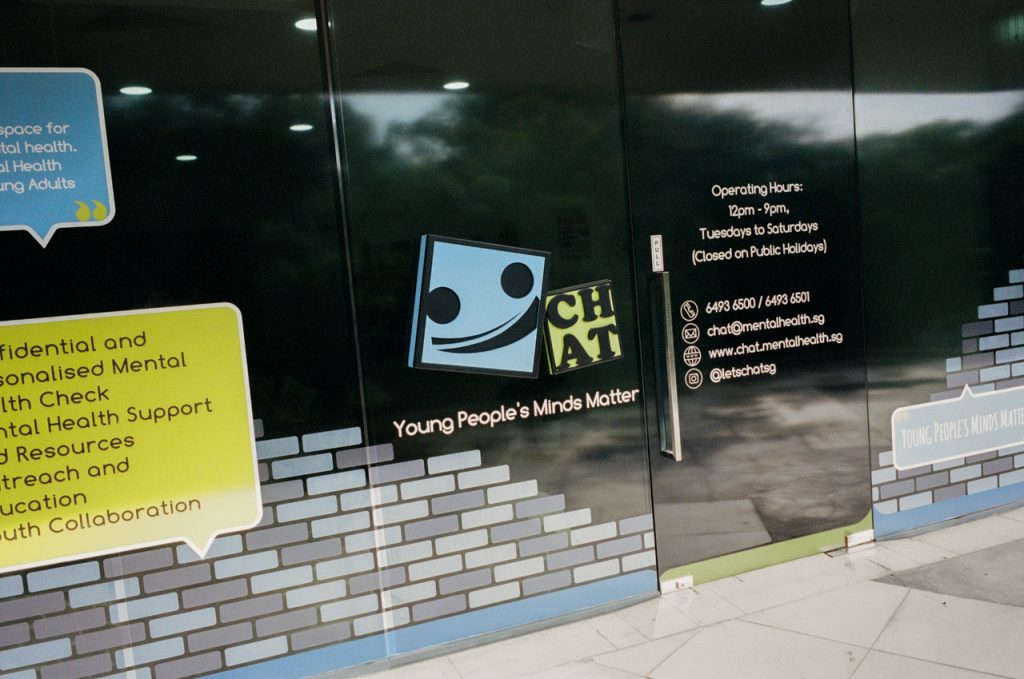
Soft jazz music fills up the space, discreetly masking the sounds of workers hammering away outside. I’m brought into a state of suspension, pulling me out of the hustle and bustle of Singapore–like pausing an intense gaming session. I see a shelf of books and pamphlets on one side and a table with card games on the other. I look for the registration desk, but I don’t see one.
Across the hall, I see someone in room A waving. She looks like she’s expecting me–I think she’s the youth support worker who called me. I hesitate to approach her. I guess this is where I’ll be for the next hour or so.

The Room
I enter room A, a small but cosy space. In this warmly lit room with one baby blue wall, two cushioned armchairs face a seat with a folding table. Not forgetting more pamphlets on the small table at the corner. The youth support worker greets me as she closes the door.
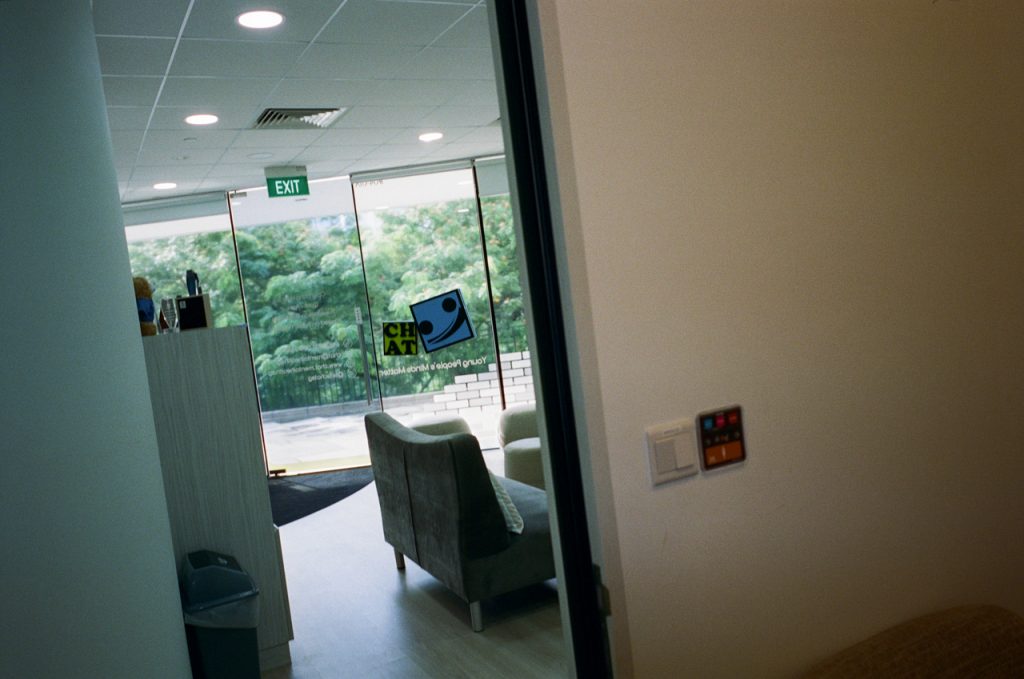
The silence is deafening. I can’t hear the music or renovation works outside anymore. All I feel is my heart pounding. I take a seat, and she gives me an introduction before we start our session.
Knowing that this was my first mental health check with no prior counselling or therapy experience, she took her time explaining to me what to expect. This therapy session—my first one ever—is to understand my distress and to find out how to make things better.
She clarifies that she is not a therapist or a counsellor. She’s a youth support worker but a qualified mental health professional nonetheless. Together, we’ll discuss the issues I’ve highlighted in my form and determine together if they are serious.
“Like doctors, if they notice that you have a sore throat and are coughing, they would inform you that those are normal symptoms of an upper respiratory tract infection,” she explains. If there are no other concerning signs, they won’t amplify the symptoms to deduce that it’s something alarming, like throat cancer.
Simply put, if I display mild symptoms, she wouldn’t be quick to deduce that I have a mental health disorder. Instead, she focuses on exploring the causes and effects of those symptoms to help me further understand my mental health state.
She informs me, while she drafts her notes on a laptop, that whatever I tell her will be kept confidential. She would need the notes to refer me to the next helping professional for longer-term support if I needed (or wanted) further help.
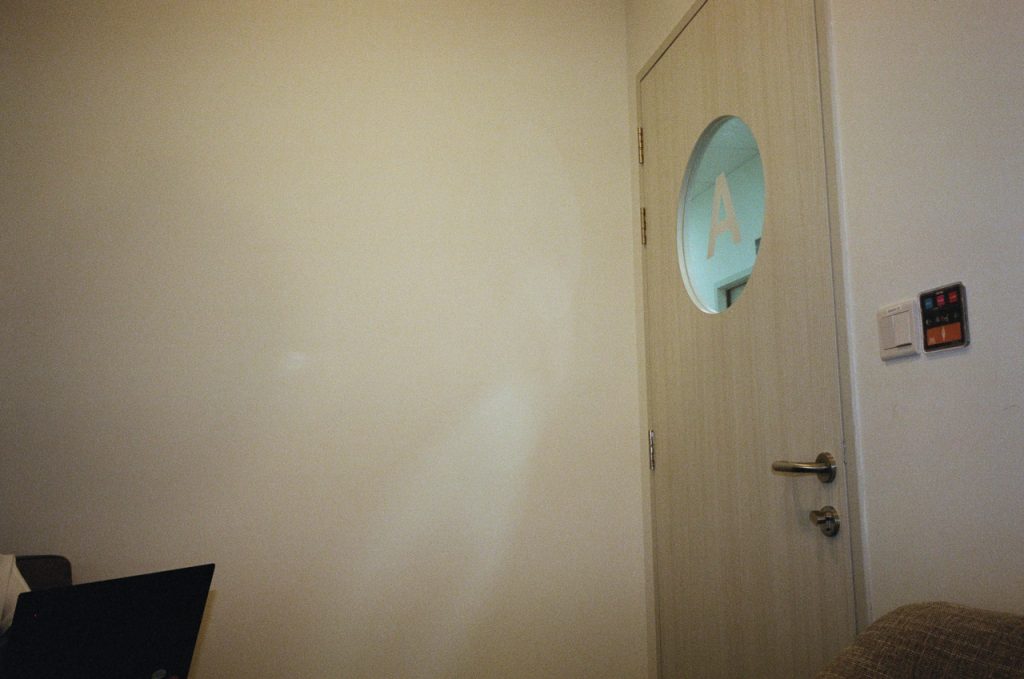
From Vague to Vivid
As our session kicks off, she tells me that my answers in the form are very frank. On it, I’d stated that I felt my work-life imbalance had been affecting my relationships—to the point I’d feel disconnected during conversations, all because I keep thinking about work.
Oh, the form. It took me two days to complete something that, seemingly, could’ve been done in 10 minutes. Over those two days, it was a lot of self-reflection to understand my struggles, needs and wants. And now, face-to-face, it’s about communicating them to her.
I can talk to people just fine. Talking to a professional, however, turned out to be a new kind of social exercise. I have to open up, but I’m hesitant. What if I say something wrong? Is there even a wrong answer? I know it’s a check-up, not a test, but these thoughts raced through my mind.
It’s unusual to talk with someone, much less a stranger, about my struggles. “Share what you’re comfortable with,” she reminds me.
I started with vague answers, but she prompted me with follow-up questions about my thoughts and how they affect my daily life.
To help me open up more, the youth support worker also shared her own experiences. This made it feel more like a conversation rather than an interview. After a while, I slowly sunk into the seat and got comfortable.
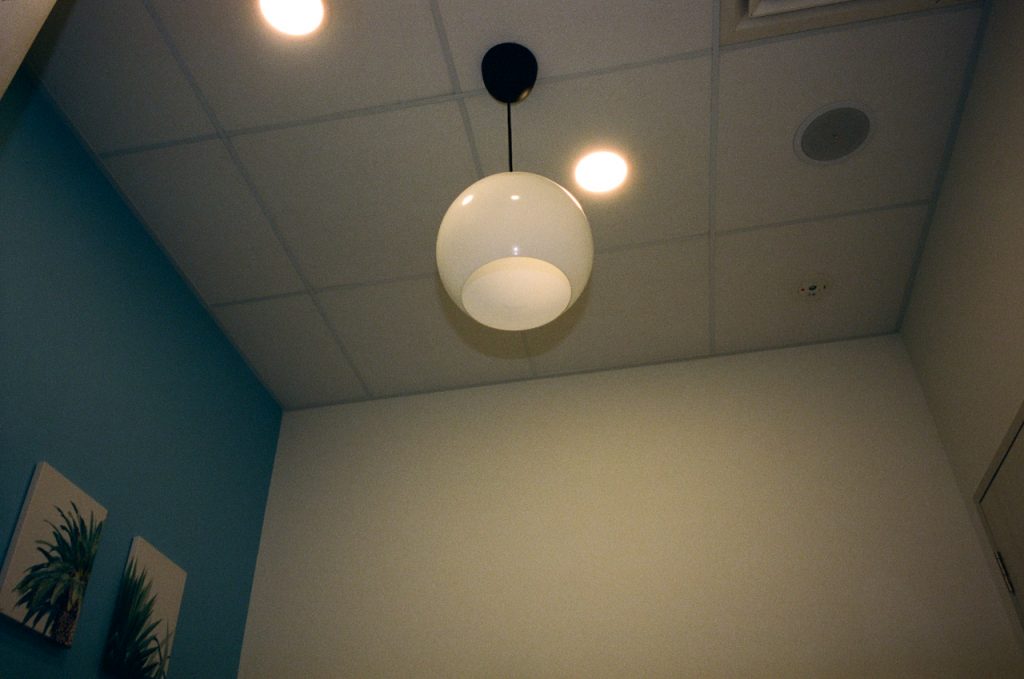
As I spoke, she listened attentively without any interruptions or solutions. She validated my emotions and actions. Halfway through the session, I realised that the challenge was less of me opening up to her but rather it was really about articulating my thoughts.
Something that I’ve noticed is that I struggle to communicate to others how I feel when I can’t seem to find the right words. I would beat myself up (figuratively) about it and compare myself with my peers. Some people can share how they feel so easily. She assured me that everyone copes differently and I shouldn’t feel pressured to do it like them.
“Just because it works for someone else doesn’t mean it might work for you,” she tells me.
I began to understand the ‘support’ in ‘youth support worker’. She isn’t there to fix me. With what she knows about my situation, she’s guiding me towards better self-awareness.
Help, Just Around the Corner
Towards the end of our session, she tells me there’s no need for a follow-up session or a referral for further support if I didn’t want it.
From the perspective of a youth support worker, seeking professional help is recommended if the client is experiencing distress and finds that their functioning is at least mildly impacted.
Different types of help are recommended for different severities of distress and impact on functioning. Even though I feel my distress is slightly higher than usual, she assures me that, overall, I’m functioning normally across school and personal life.
It’s expected that some distress will arise due to life’s changes and challenges—and it’s essential to discern that from levels of distress and dysfunction that are disproportionate to the challenge faced.
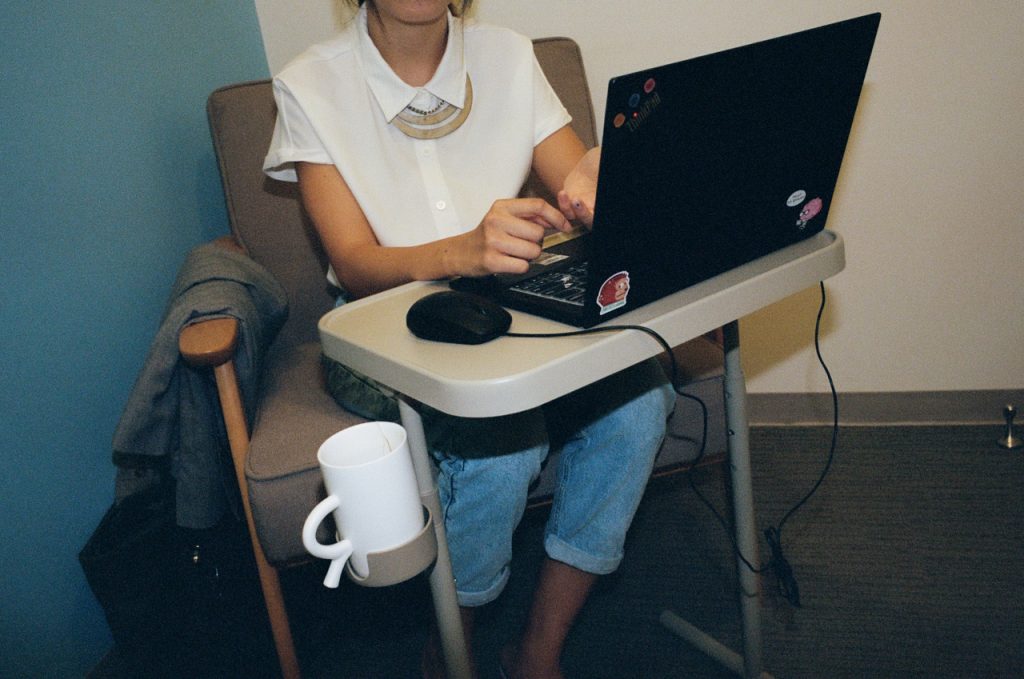
In just one session, the CHAT youth support worker found a way to begin a process I will continue to tread. But among my peers, only a small handful of them have checked on their mental well-being.
Before the check-up, I talked to a couple of my peers. Joey, a 21-year-old student, shared with me her experience when she went for her first mental health check in her final year of polytechnic.
“During my final year project, I found myself extremely overwhelmed and stressed,” she recalls.
“I was at a loss [and I didn’t know] what to do. It felt like everyone around me kept moving forward, but I remained stagnant. I knew that I needed help, but I didn’t know what to do.”
“It took me about two months before I approached my school’s counsellor, who referred me to CHAT. However, I wished I sought help earlier,” she tells me, expressing regret.
Wesley, a 25-year-old student who has never gone for a mental health check, chimed in: “Going for one has never crossed my mind. Most days are good—I don’t see a need for checking up. On the tougher days, however, I can see why it’s important.”
The youth support worker agrees—seeking help is not as stigmatised as before. Though more Singaporean youths are attuned to their mental health needs, CHAT can’t speak for all of them. They don’t know who needs help if they haven’t come forward.
Slow and Steady
After the session, I asked her why she joined CHAT as a youth support worker. She tells me that she first found CHAT when she was in my shoes: as a client.
“When I was reaching out, I was so scared of talking about my problems. CHAT provided a space that was much more relaxed than a doctor’s office and helped me open up despite the nerves,” she reminisces.
“Today, I understand that whatever struggles I have can be worked on–as long as I ask for help when I need it. And I believe in my self-efficacy, and in allowing myself to make mistakes and become better,” she adds.
In the same way, if there’s distress that affects your daily life, the first step is to acknowledge that—and to take the initiative to understand it better. There’s no harm in getting checked.
She opens the door, and I hear familiar jazz music trickling in. She shows me around CHAT@SCAPE, stopping at its bookshelf. She picks up and opens an illustrated book. I’m confused.
She tells me that the book gave her a different perspective during a difficult time. “The book helped me start seeing that my wild worries may not be accurate but were more of a manifestation of my anxiety.”
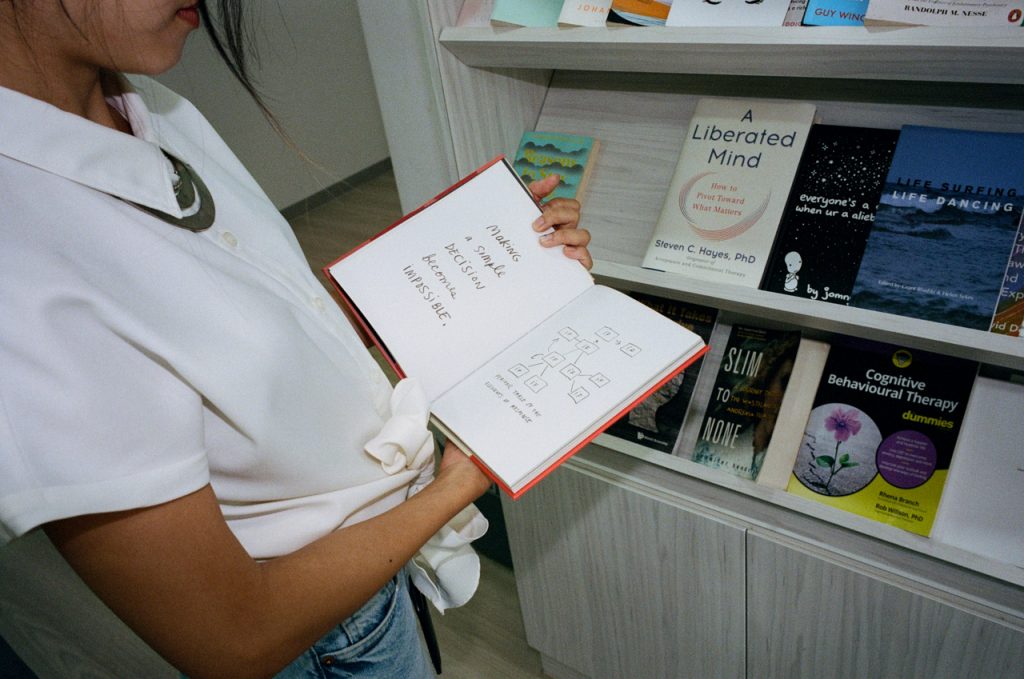
I say my goodbyes, and I step out of CHAT@SCAPE while their giant logo smiles at me one last time. I enter the lift and I see a sign that reads: “I am slow. I am steady. I lift you up when you are down.”
I make my way out of *SCAPE, observing the renovations happening around me. Workers walking around in their helmets. The sound of someone drilling away. It reminds me that I am still, and always, a work in progress.
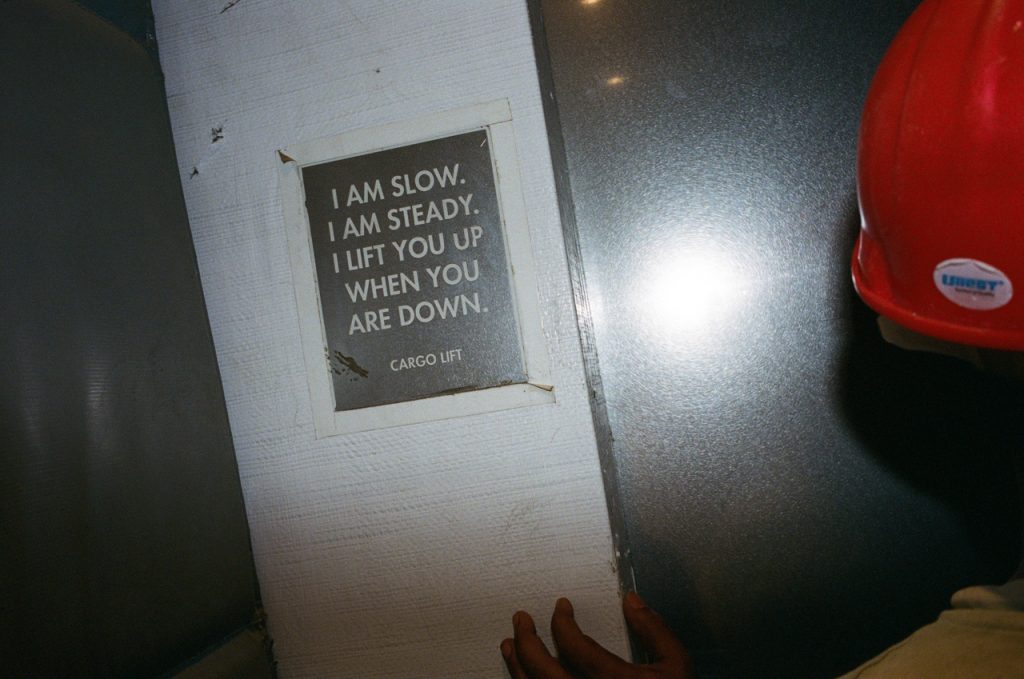
At the start of my mental health check, I was looking for a solution that flips like a light switch. I wanted to turn off my thoughts and feelings. But obviously, that is just not possible. The whole process, though unusual at the start, was actually an open conversation with someone who genuinely wanted to help me.
The wall of fear that I once had has come down. And by the end, I am more assured that my mild distress isn’t serious. Of course, I didn’t know that in the beginning, but I had nothing to lose.
The road to mental well-being is no quick fix; it’s a journey to take at your own pace. The first step is always the hardest. Even if you can’t see the end of it, at least you know where to start.






